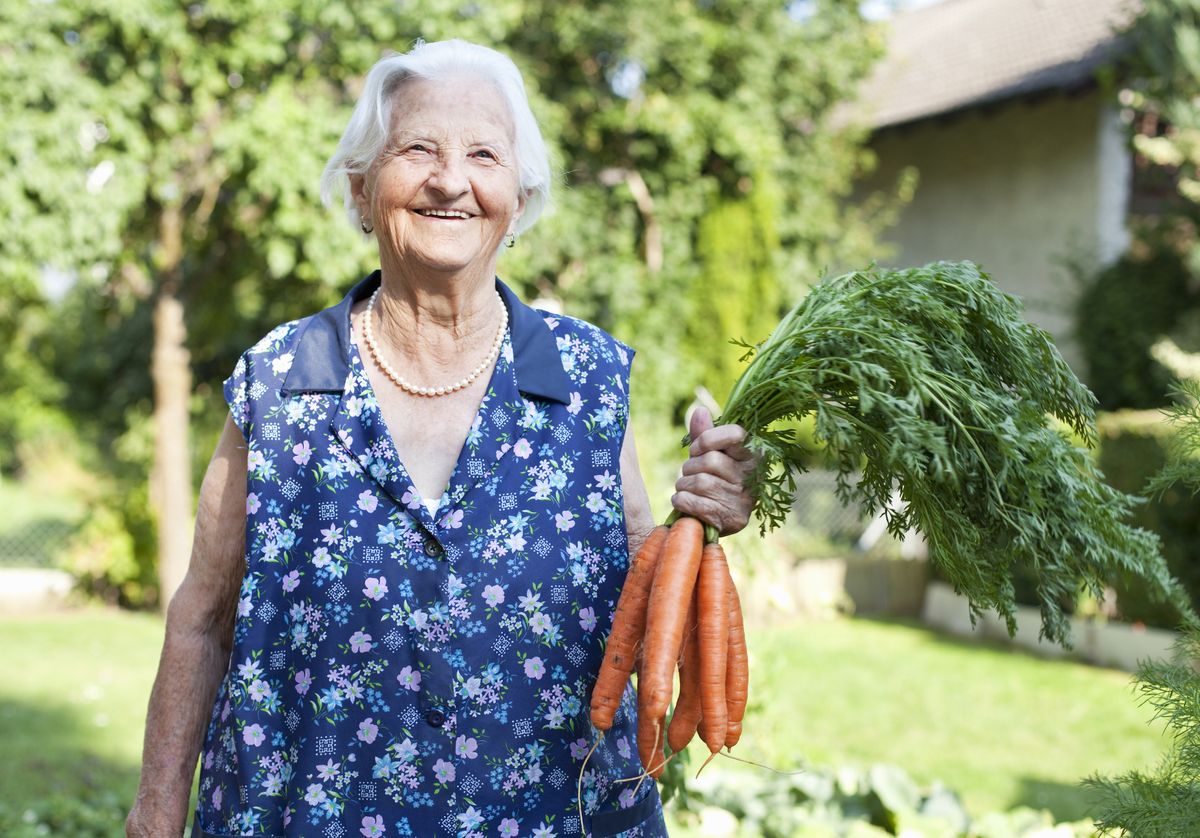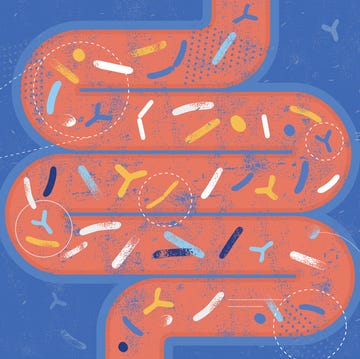Spare a thought for the billionaires of Silicon Valley. While the rest of us have been coming to terms with a weekly food shop that’s inflating quicker than the ego of an Apprentice contestant, they’ve been engaged in a cost-of-living crisis of their own.
From shelling out £7000 to have the contents of their brains uploaded to the cloud after they die (CEO of OpenAI Sam Altman) to parting with up to £170,000 to have bodies cryogenically frozen in liquid nitrogen (Peter Thiel, co-founder of PayPal) it seems the race to live forever is alive and well – if only you can afford to compete.
But while they were re-writing cheques and logic (anyone know how to defrost a body?) researchers were cooking up a more accessible solution.
In a paper published in the journal Cell, biologist Valter Longo examined a century of research on the influence of nutrition on ageing. As director of the Longevity Institute in California and professor of gerontology (the study of ageing), Longo has spent his career unpicking the mechanics of what was once deemed pot luck – your endpoint.
Now, he's built a blueprint. Dubbed the longevity diet, he claims that by making subtle tweaks to both what and when you eat, you can increase your lifespan by up to 13 years. But will you be ordering from his menu?
PLATE EXPECTATIONS
Adjusting your nutrition to optimise your health: ground-breaking, it isn’t. And it’s true that much of the longevity research confirms what we already know about diets that are rich in fruit, vegetables, nuts, cereals, fish and unsaturated fats.
‘Diets which contain antioxidants, potassium and omega-3 support a reduction in cardiovascular disease and obesity risk, as well as protecting the brain from ageing,’ says Charlotte May, nutritional therapist and lead health coach at the longevity-focused health clinic Wellgevity.
A 2022 Norwegian meta-analysis quantified this: a woman’s lifespan could increase by up to 10 years with a diet high in wholegrains, legumes, fish, fruit, vegetables and nuts, and low in red and processed meats, sugary drinks and refined grains.
So if none of this is news, why has Professor Longo turned this data into a diet? Well, despite awareness of the link between nutrition and longevity, it’s difficult to avoid the unhealthy trappings of the average Western diet. For starters (and probably mains), there’s the accessibility of red meat and ultra-processed foods – the over-consumption of which has two major effects on health, says Pankaj Kapahi, a professor of gerontology at the Buck Institute for Research on Ageing.
As processed foods are less satiating than wholefoods, you end up consuming more calories. But processed food also require less energy to digest compared with wholefoods, meaning you store more calories - even if the calorie-count is identical. This combination increases the likelihood of obesity and associated life-shortening conditions, such as cardiovascular disease, as well as certain types of cancer.
Then there’s the calorie intake from simple carbohydrates, like sugar and soft drinks; diets high in simple carbohydrates trigger your pancreas to release excessive insulin – the hormone that breaks down carbohydrates into sugars for energy. When too much insulin is produced, cells become resistant to its effects, increasing the chances of developing conditions like Type 2 diabetes.
That Western diets are a recipe for disease is one reason Professor Longo cooked up an alternative approach – one that can be adapted by anyone, and with any ingredients. And while it’s a topic he’s been building on since the release of his book The Longevity Diet in 2016, following the clinical findings in the Norwegian study - which linked the most significant increase in lifespan to a diet that he argues ‘almost perfectly matched the Longevity Diet’ - he’s more convinced of its efficacy than ever.
Follow his nutritional guidelines from the age of 20, he claims, and you can expect to live up to 13 years longer, maybe more. So how does it work?
FAT CHANCE
First, ditch any misconceptions that a low-carb, high-fat diet, such as the Ketogenic diet – which claims to push the body into a state of ketosis, burning fat for energy rather than glucose – is the key to living longer.
Though it might help you lose weight, a 2018 meta-analysis of nearly 500,000 people found that both a low-carb diet (where carbs provide less than 40% of energy) and a high-carb diet (more than 70% energy from carbs) increase the risk of mortality compared with a moderate carb intake of 50 to 55%.
Though it’s not fully understood why a low-carb diet could influence mortality in this way, one theory proffered by Professor Longo is that, when you ditch bread and pasta, you naturally consume more saturated fat – the consequences of which can be dire.
One study found that every 5% increase in saturated fat consumption, compared with carbohydrates, raised mortality rates by 8% by triggering higher rates of cancer, heart and respiratory disease, even dementia. That’s why Professor Longo recommends a diet made up of 50% to 60% carbohydrates, and 30% fats, mainly from plant-based sources, such as olive oil, nuts and dark chocolate.
Next, aim for a lower-than-advertised protein intake of around 0.8g per kg of body weight. If you weigh 70kg, that looks like consuming 56g per day of protein – the rough equivalent of an egg, a yoghurt and a small salmon fillet. By reducing your protein intake, you can inhibit the production and circulation of growth hormones, such as 1GF-1 and Growth Hormone (GH), which together manage the normal development of cells, tissues and bones.
These might sound like the good guys, but you can have too much of a good thing; overdo levels of growth hormones and healthy ageing processes can accelerate and become disregulated, increasing the likelihood of conditions like diabetes and cardiovascular disease.
Of course, some people need to eat more protein; menopausal women or those 65 plus are advised to consume higher levels in order to preserve their muscle mass. But Professor Longo’s definition of ‘lower’ is in comparison to the consumption typical of a Western diet. Compare his recommendations to those from the NHS, for example, and you’ll see they roughly align.
Protein quantity sorted, it’s time to think about quality. According to Professor Longo, one third should come from fish that’s high in omegas 3 and 6 and vitamin B12, and low in mercury, such salmon, cod and prawns; the other two thirds should come from plant-based sources, such as legumes (beans, peas, lentils), which are also high in essential amino acids.
This formula has been shown to be the most effective for longevity, with several studies finding that pescatarians have a reduced risk of mortality compared with both vegans and meat-eaters, thanks to the fact that fish is swimming with nutrients. And while red meat might boast the most seductive protein stats, swerve it – particularly processed versions, which can impact lifespan via connections to problems such as cardiovascular disease.
Finally, aim to consume all your food within a 12-hour window, which usually means stopping three to four hours before bed. Known as time-restricted eating (TRE) – in which you consume all your calories within a set window – it’s increasingly being linked with longevity.
But while some studies credit the practice with lower incidences of cardiovascular disease and insulin resistance, others have found that long periods of TRE - where participants skip breakfast - can have the reverse effect, leading to higher rates of mortality. A confusing body of research is one reason Professor Longo determined 12 hours of eating to be the best of both worlds.
FOOD FOR THOUGHT
There’s no disputing that the longevity diet is infinitely more accessible than Silicon Valley alternatives and, unlike some plans, it’s served up without the whiff of a fad. But does the nutrition community buy it?
For May, while the longevity diet confirms what we already knew (‘that adjusting nutritional patterns is crucial to preventing the development of disease, enhancing quality of life and healthy ageing’) she sees limitations in its recommendations around TRE, where studies have typically focused on either animals or men.
‘This is important as men and women react differently to fasting and calorific restriction,’ she explains. ‘Men’s hormonal profiles tend to be favourably impacted, whereas women’s tend to be negatively impacted if fasting is undertaken at the wrong time and for too long.’
Of course, gender differences aren’t the only issue at play here. As anyone who's endured a slice of gluten-free bread while looking longingly at a pizza will know, our digestive systems are different and what works for one person won’t necessary work for another.
‘One of the key things we’re not discussing is the large individual differences such as genetic variation and lifestyle factors,’ adds Kapahi, referring to everything from your daily step count to your inherited risk of disease.
Professor Longo acknowledges this himself; though he stands by his guidelines, he recommends anyone with a medical condition (or aged 65 plus) to seek advice from a nutritionist or doctor in order to to personalise the plan.
So while we await the next billionaire bio-hack, know that there’s a more palatable approach to the problem of prolonging your life – one that doesn’t involve the freezer.
The longevity menu
What to order for a longer life, according to Professor Longo
Keep protein levels low: If you're not yet menopausal and you're under 65, aim to consume for 0.8g of protein per kg of bodyweight.
Prioritise fish and plants: Try to make two-thirds of your protein consumption of low-in-mercury fish (anchovies, sardines, seabream) and one-third of it plant-based (chickpeas, lentils).
Learn to love legumes: Plants aren't reserved for protein, either. Make sure you pack in plenty of amino-acid rich beans and legumes, too.
Consume complex carbs: Not named for their inability to reply to a WhatsApp but for the time they take to digest. Make complex carbs (quinoa, sweet potato, oats) 50-60% of your diet.
Moderate your fats: Minimise saturated animal-based fats like meat and cheese while loading up on plant-based fats, such as nuts. Keep fats to a maximum of 30% of your diet.












